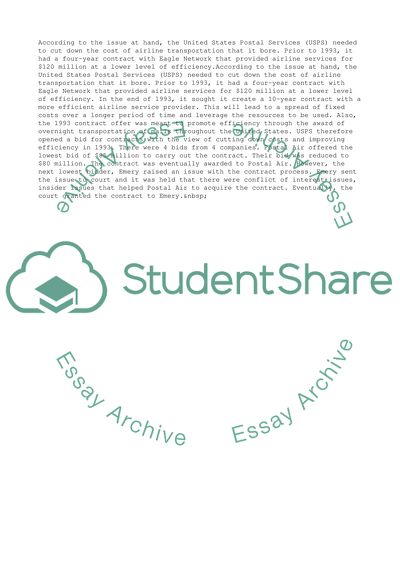Cite this document
(“Public Acquisition Contracts: USPS Case Research Paper”, n.d.)
Public Acquisition Contracts: USPS Case Research Paper. Retrieved from https://studentshare.org/business/1591185-government-contract-disputes
Public Acquisition Contracts: USPS Case Research Paper. Retrieved from https://studentshare.org/business/1591185-government-contract-disputes
(Public Acquisition Contracts: USPS Case Research Paper)
Public Acquisition Contracts: USPS Case Research Paper. https://studentshare.org/business/1591185-government-contract-disputes.
Public Acquisition Contracts: USPS Case Research Paper. https://studentshare.org/business/1591185-government-contract-disputes.
“Public Acquisition Contracts: USPS Case Research Paper”, n.d. https://studentshare.org/business/1591185-government-contract-disputes.


